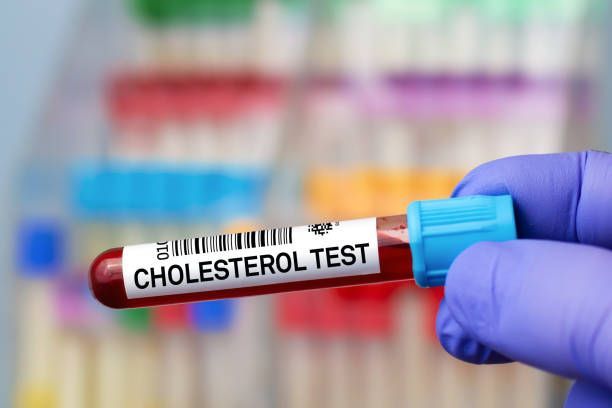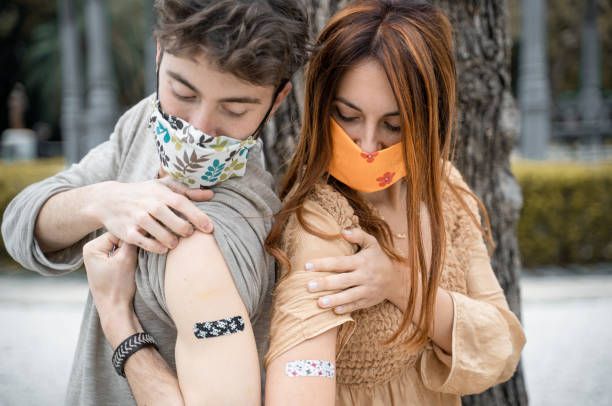Chlorine Rash: Causes, Symptoms, and Prevention - UrgiClinic
Whether you enjoy a refreshing dip in the pool or are an avid swimmer, you may have encountered the unpleasant experience of a chlorine rash. This itchy and irritating skin condition is common among individuals who spend time in chlorinated swimming pools. Understanding the causes, symptoms, and prevention methods of a chlorine rash is essential for maintaining healthy skin and enjoying water activities. This comprehensive blog will delve into chlorine rashes, exploring their causes, symptoms, and effective prevention and treatment strategies to avoid visiting a 24 hour urgent care center. By equipping yourself with this knowledge, you can confidently protect your skin and have a more enjoyable swimming experience.
What is Chlorine Rash?
Chlorine rash, also known as swimming pool rash or irritant contact dermatitis, is a skin condition from chlorine exposure or chlorinated water. Chlorine is a disinfectant used to kill bacteria to maintain water cleanliness. However, it can have irritating effects on the skin. This is particularly true for people with sensitive skin or who spend prolonged periods in chlorinated water.
Chlorine disrupts the skin's natural oils and moisture barrier, leading to dryness and irritation. Be advised that a chlorine rash differs from an allergic reaction to chlorine, which involves an immune response.
Allergic reactions are less common, and they can cause more severe symptoms and require hospital or urgent care services.
Understanding chlorine rash and its underlying causes can help individuals take appropriate preventive measures and seek effective treatment to alleviate discomfort and maintain healthy skin.
Chlorine Rash Causes
Chlorine rash is a form of contact dermatitis. It is directly caused by the chemical properties of chlorine and its interaction with the skin. When chlorine comes into contact with the skin, it can disrupt the natural oils and moisture barrier, leading to dryness and irritation. This is because chlorine is a strong oxidizing agent that can break down proteins and lipids present in the skin, compromising its integrity. Chlorine also reacts more volatilely with substances such as sweat, urine, or personal care products, forming chloramines and other irritating compounds. These chemical reactions can further exacerbate skin irritation and inflammation.
Individuals may also have an allergic reaction to chlorine. This occurs when the immune system mistakenly identifies a harmless substance, in this case, chlorine, as a threat. In return, histamines and other chemicals are released to trigger an inflammatory response. This allergic reaction can result in more severe symptoms than a simple chlorine rash, such as hives, swelling, and difficulty breathing.
Individuals with pre-existing skin conditions, such as eczema, may be more prone to developing a chlorine rash due to their compromised skin barrier. Similarly, repeated or prolonged exposure to chlorinated water, such as in regular swimmers, increases the likelihood of experiencing a chlorine rash. People often develop swimmer's itch after swimming in water that hasn’t been chlorinated, since chlorine kills the parasites.
Read this next:
Everything You Should Know About Swimmer’s Itch
Chlorine Allergy Symptoms
When identifying a chlorine rash, recognizing the telltale signs is crucial. From redness and irritation to itching and dryness, understanding the symptoms can help individuals pinpoint and address this common skin condition. Below are some of a chlorine rash's most common signs and symptoms.
1. Redness and Irritation
One of the primary symptoms of a chlorine rash is redness and irritation on the skin. Affected areas may appear inflamed, with patches of heightened redness and sensitivity.
2. Itching and Discomfort
Individuals with a chlorine rash often experience intense itching and discomfort. The skin may feel itchy, leading to scratching, which can further aggravate the irritation.
3. Dry and Flaky Skin
Chlorine can strip the skin of natural oils, causing dryness and flakiness. The affected areas may feel rough and appear visibly dry, contributing to feelings of tightness and discomfort.
4. Rash Patterns
Chlorine rash can present in various patterns on the body, depending on the areas of skin exposed to chlorinated water. Common areas affected include the arms, legs, torso, and face.
5. Blisters and Skin Peeling
In more severe instances, a chlorine rash can lead to the formation of blisters and skin peeling. This indicates a more pronounced skin reaction and may require medical attention from an emergency or urgent care center.
It is important to note that symptoms may vary in intensity and duration depending on individual sensitivity and exposure to chlorine. Recognizing these symptoms helps individuals identify a chlorine rash and seek appropriate treatment to alleviate discomfort and promote skin healing.
Read this next:
Recognize and Act: When to Seek Urgent Care for a Rash
How to Prevent Chlorine Rash
Chlorine rash can be effectively prevented by implementing simple strategies that minimize exposure to chlorine and protect the skin. One of the critical prevention measures is to rinse the body thoroughly before and after swimming. Pre-swim showering helps remove substances such as sweat or personal care products that can react with chlorine and exacerbate skin irritation. After swimming, rinsing residual chlorine off the skin is essential to minimize its drying effects.
Applying a moisturizer or barrier cream before swimming can create a protective layer on the skin, reducing direct contact with chlorine. Opting for protective clothing like rash guards or swim shirts can provide an additional physical barrier between the skin and chlorinated water. For individuals sensitive to chlorine, exploring alternatives such as saltwater pools, freshwater lakes, or natural bodies of water can be beneficial. By adopting these preventive strategies, individuals can significantly reduce the risk of developing a chlorine rash and enjoy swimming while keeping their skin healthy and comfortable.
Treatment and Management
When faced with a chlorine rash, there are several approaches to alleviate symptoms and manage the condition effectively. Home remedies such as taking cool showers, applying aloe vera gel, or using over-the-counter hydrocortisone creams can relieve itching and inflammation. It is essential to avoid scratching the rash to prevent further irritation and potential infection. If the symptoms persist or worsen, seeking medical attention is recommended.
A healthcare professional can prescribe stronger topical medications or oral antihistamines to alleviate severe symptoms. Further, they can guide proper skincare routines and recommend hypoallergenic products to prevent future flare-ups. Taking steps to minimize chlorine exposure and practicing good skincare habits can aid in the long-term management of chlorine rash.
Visit an Urgent Care Center Today
Although a common skin condition associated with swimming pool exposure, chlorine rash can be effectively managed and prevented with proper knowledge and preventive measures. Individuals can significantly reduce their risk of developing a chlorine rash by understanding the causes, recognizing the symptoms, and implementing strategies to minimize chlorine exposure. Prompt treatment with home remedies and, if necessary, medical intervention can alleviate discomfort and promote healing.
Instead of searching for “urgent care near me,” trust the providers at UrgiClinic Urgent Care. Our urgent care clinic providers can identify how to treat you and your symptoms best. Visit us today for top-notch healthcare.













